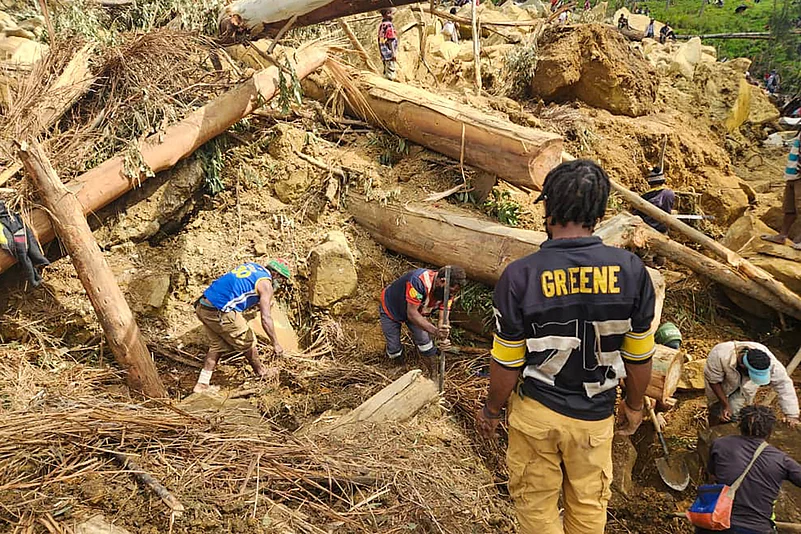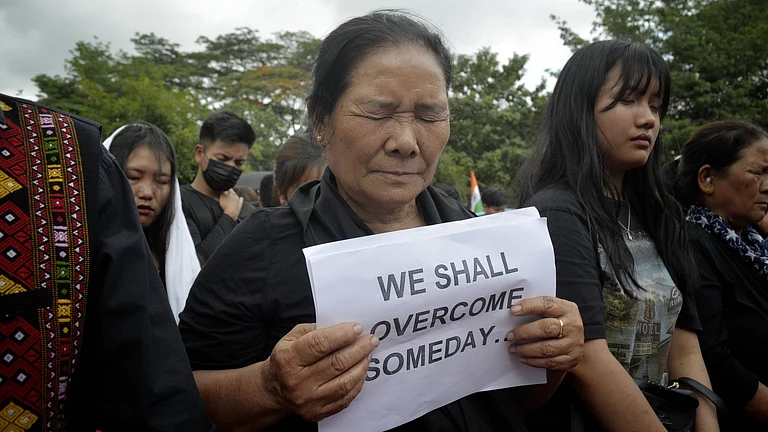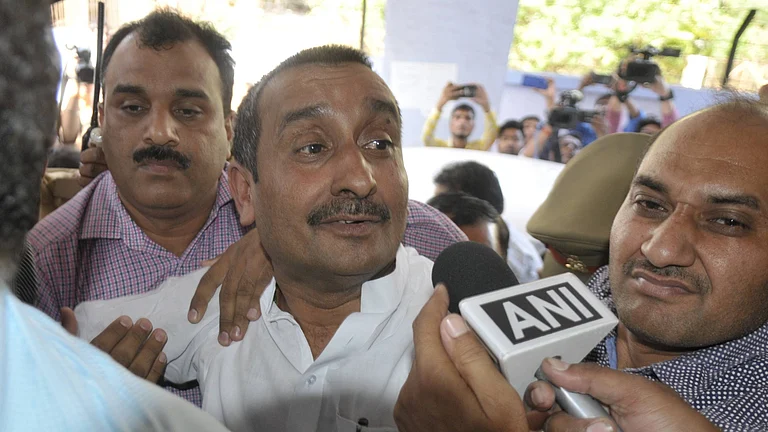Authorities in Papua New Guinea are now trying to relocate thousands of survivors to a safer ground in view of the risk from a potential second landslide in the country's highlands.
Meanwhile the arrival of heavy earth-moving equipments at the site of the disaster have been delayed, officials said.
The South Pacific island nation's Yambali village in the Enga Province was struck by a massive landslide last week, crushing trees, thousands of homes and lives.
Emergency responders said that around 8,000 people might need to be evacuated as the debris and mass boulders are becoming unstable with every passing minute.
The Disaster Centre on Monday informed the United Nations that over 2,000 people were buried alive due to the landslide in the Enga province's village.
Earlier, the UN's migration agency had estimated the death of 670 villagers. By Tuesday, six bodies were retrieved from the debris.
Country director for the humanitarian agency CARE International, Justine McMahon, said that an evacuation centre near Yambali could only accommodate 50 families.
"For the number of people that they anticipate having to help, they actually need more land and I understand the authorities are trying to identify places now,” McMahon added.
Meanwhile, Enga provincial disaster committee chairperson and provincial administrator Sandis Tsaka told The Associated Press that he would not know how many villagers had been evacuated till late Wednesday.
President of the International Federation of Red Cross and Red Crescent Societies, Kate Forbes, said that the unstable ground was also affecting the humanitarian response.
“Right now, the issue is, I understand, ...safety and access,” Forbes told reporters, adding that, "We have to be sure that the land is somewhat stabilized before we can send our workers in to a great deal of extent."
The military earth-moving equipment which has supposed to arrive at the scene on Tuesday from the city of Lae, could not reach on time as a bridge between Enga provincial capital Wabag and nearest airstrip at Mount Hagen collapsed, for reasons still unexplained.
Now this will add an extra two to three hours to the journey for aid convoys taking supplies to the Mount Hagan. It also delayed the arrival of heavy equipment being transported from Lae.
Papua New Guinea Defense Force said that five to 10 heavy earth-moving machines were now expected to be on the scene by Thursday.
Meanwhile, a team of 40 military engineers and medical staff reached Wabag on Tuesday night, making a two-hour journey to Yambali. The highway and the main roads to the village were blocked by the landslide.
The team has started negotiating with the villagers for permission to start digging as they are divided over whether heavy machinery should be allowed to dig up and further damage the already buried bodies of their loved ones.
An excavator, donated by a local builder, was the first piece of heavy machinery brought in to help the villagers who have been digging to find their relatives with shovels and farming tools.
Papua New Guinea is a diverse, developing nation with 800 languages and 10 million people who are mostly subsistence farmers.
(With agency inputs)



























